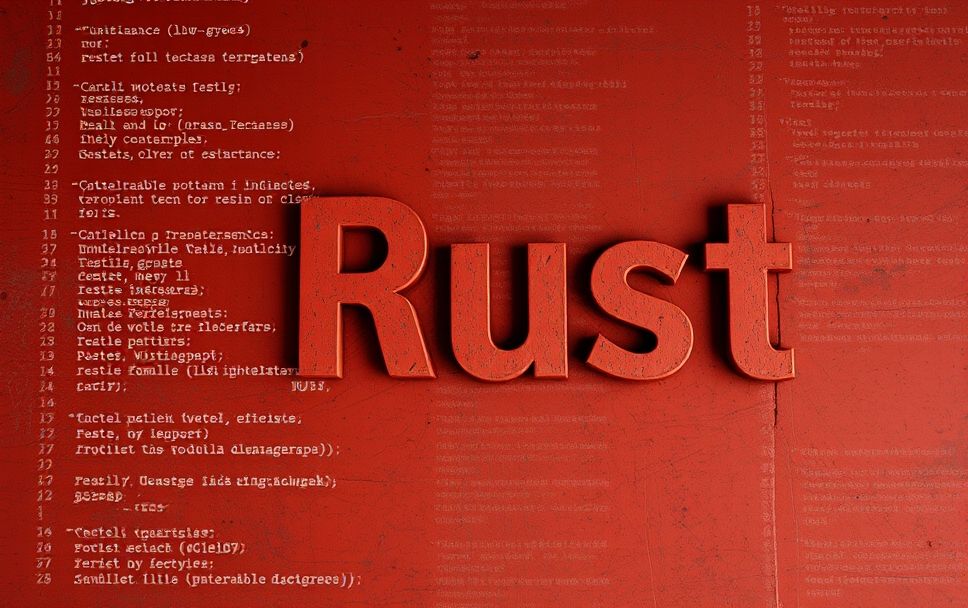Understanding Rust Programming
Rust programming is a systems programming language designed for performance, safety, and concurrency. It is known for its unique ownership model that ensures memory safety without needing a garbage collector, making it an attractive choice for developers looking to build fast and reliable software.
The Importance of Rust in Today’s Development Landscape
In the realm of technology, the need for efficient and safe programming languages is growing. Rust’s emphasis on safety and concurrency makes it particularly relevant in today’s software development environment. As applications become more complex and increasingly reliant on concurrent processes, Rust provides the tools necessary to manage these complexities effectively.
Key Features of Rust
- Memory Safety: Rust prevents data races and ensures that memory is accessed safely through its ownership model.
- Concurrency: Rust allows multiple threads to run simultaneously without the risk of data corruption.
- Performance: Rust is designed for speed, often achieving performance levels comparable to C and C++.
- Tooling: Rust comes with an integrated package manager (Cargo) and excellent documentation, making it easier for developers to start and maintain projects.
Applications of Rust Programming
Rust is widely used across various sectors, showcasing its versatility and robustness. Here are some practical applications:
- Systems Programming: Rust is ideal for developing operating systems, embedded systems, and other low-level programming tasks where performance and safety are critical.
- Web Development: Frameworks like Rocket and Actix allow developers to create high-performance web applications with Rust.
- Game Development: Game engines such as Amethyst leverage Rust’s performance and safety features, making it a popular choice among game developers.
- Blockchain: Many blockchain projects utilize Rust for its safety and concurrency, ensuring secure and efficient transactions.
Real-World Examples of Rust
Several prominent companies and projects have adopted Rust programming:
- Mozilla: Rust was developed by Mozilla and is used in their Servo browser engine.
- Dropbox: The file synchronization service uses Rust for performance-critical components.
- Cloudflare: Utilizes Rust to enhance performance and security in its services.
How to Get Started with Rust Programming
If you’re looking to dive into Rust, here’s a simple guide to get you started:
- Install Rust: You can easily install Rust using the Rustup tool, which manages Rust versions and associated tools.
- Explore the Documentation: Rust has comprehensive documentation that covers everything from basic syntax to advanced features.
- Build a Simple Project: Start by creating a simple application, such as a command-line tool, to familiarize yourself with the syntax and concepts.
- Join the Community: Engage with the Rust community through forums, Discord servers, and local meetups to learn from others and share your experiences.
Practical Applications of Rust in Daily Development
To transform your knowledge into action, consider the following practical applications of Rust:
- Enhancing Existing Projects: Introduce Rust components into your existing projects to improve performance and safety.
- Contributing to Open Source: Engage with open-source Rust projects to enhance your skills while contributing to the community.
- Building Microservices: Use Rust to create microservices that require high throughput and low latency, enhancing your application’s architecture.
Related Concepts in Programming
Understanding Rust programming also involves knowledge of several related concepts. Here are a few:
- Memory Management: Understanding how Rust handles memory can help programmers appreciate its safety features.
- Concurrency Models: Familiarity with concurrency models in other languages can provide insights into Rust’s approach.
- Systems Programming: Knowledge of systems programming principles is beneficial for those looking to utilize Rust in this domain.
Final Thoughts on Rust Programming
Rust programming presents a compelling option for developers interested in building safe, concurrent applications. By understanding its features, applications, and best practices, you can leverage Rust to enhance your software development projects. Whether you are a seasoned programmer or just starting, the skills you acquire in Rust will undoubtedly open new avenues for growth in the tech industry.
As you explore Rust, consider how you can integrate its principles into your daily programming practices. What projects could benefit from Rust’s safety and performance? Reflect on the potential of this powerful language in your coding journey.









